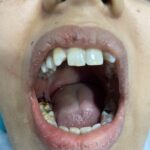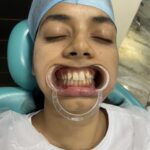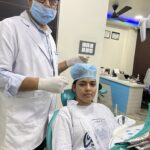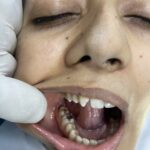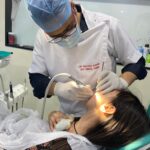Crown (Tooth CAp) and Bridge
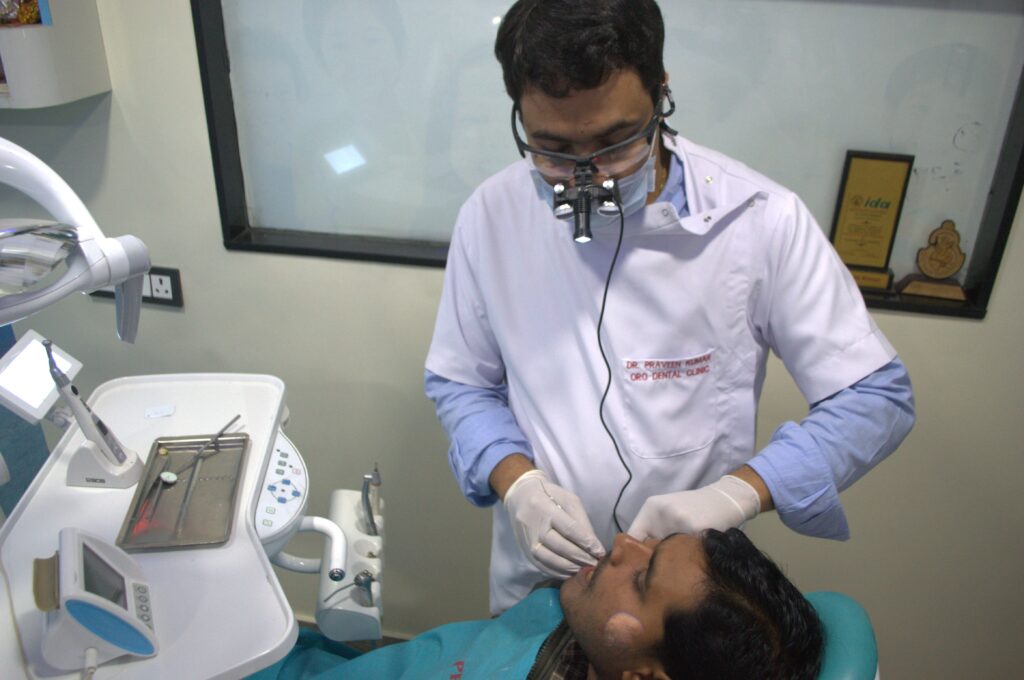
A crown is a tooth cap that is placed over a tooth to restore its shape, strength, and appearance. A bridge is a false tooth or teeth that are attached to crowns on two healthy teeth on either side of the gap created by a missing tooth. Crown and bridge treatment is a versatile and effective solution for restoring dental function and aesthetics. It is customized to match the patient’s natural teeth in shape, size, and color, resulting in a seamless and functional smile.
The Crown and Bridge Treatment Process
Comprehensive Examination: Dr. Praveen Kumar will conduct a thorough assessment of your oral health, including X-rays if needed, to determine the best treatment plan.
Tooth Preparation: For dental crowns, the damaged or decayed portion of the tooth is removed, and the tooth is reshaped to accommodate the crown. For bridges, adjacent teeth are prepared to anchor the bridge.
Impressions: We take precise impressions of your teeth to ensure a snug fit for your custom-made crowns or bridges.
Temporary Restorations: While your permanent crowns or bridges are being crafted in the lab, we provide temporary restorations to protect your teeth.
Fitting and Bonding: Once your tooth caps or bridges are ready, Dr. Praveen Kumar will ensure a proper fit and bond them securely to your teeth.
Common Reasons for crown (tooth cap) and bridge
Tooth Decay
Dental crowns are often used to restore teeth that have extensive decay that cannot be adequately repaired with fillings.
Fractured or Cracked Teeth
Crowns can reinforce and protect teeth that have suffered fractures or cracks, preventing further damage.
Missing Teeth
Dental bridges are used to replace one or more missing teeth by anchoring artificial teeth (pontics) to the adjacent natural teeth or dental implants.
Maintaining Tooth Alignment
When a tooth is lost, adjacent teeth can shift out of position over time. Dental bridges help maintain proper tooth alignment and bite.
Weakened Teeth
Teeth weakened by large fillings or root canal treatments may require crowns to provide strength and protection.
Improving Chewing and Speaking
Bridges restore the ability to chew and speak properly, which may be impaired by missing teeth.
Post-Root Canal
After a root canal treatment, a crown is often placed on the treated tooth to strengthen it and prevent fractures.
Enhancing Aesthetics
Bridges can enhance the appearance of the smile by filling in gaps left by missing teeth.
Stabilizing Partial Dentures
Dental bridges can also serve as an alternative to removable partial dentures, providing a more stable and permanent solution for missing teeth.
Why Choose Oro Dental Clinic for Tooth Caps and Bridges?
- Expertise of Dr. Praveen Kumar: Dr. Praveen Kumar is a skilled dentist with a wealth of experience in cosmetic and restorative dentistry. He specializes in creating custom-made tooth caps to match your natural teeth seamlessly.
- Advanced Techniques: Oro Dental Clinic is equipped with state-of-the-art technology and materials, ensuring the durability and aesthetics of your dental crowns and bridges.
- Personalized Treatment Plans: We believe in individualized care. Dr. Praveen Kumar will assess your unique needs and recommend the most suitable treatment plan to enhance your smile.

